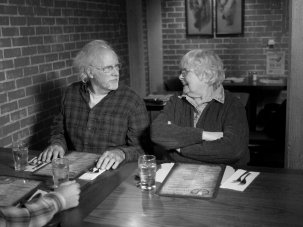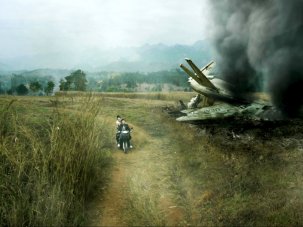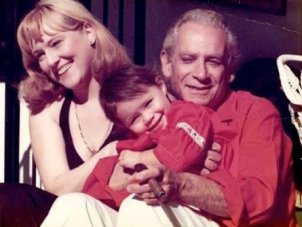Web exclusive
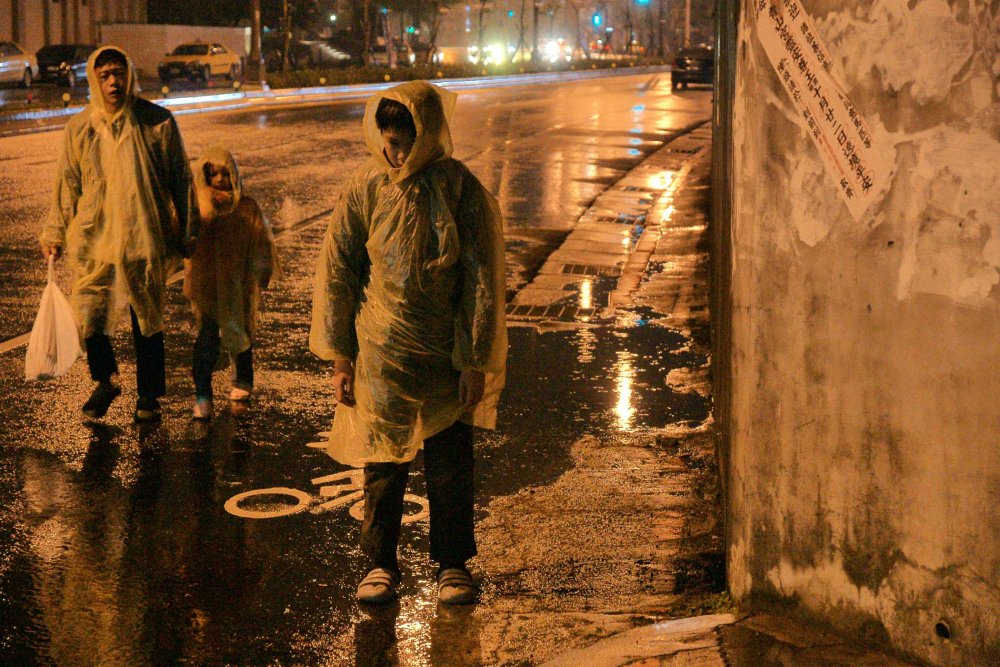
Stray Dogs (Jiaoyou)
A long spit of sand dotted with hotels, holiday villas and a handful of restaurants, the Venice Lido is an odd place to view and write about films. Though the Lido’s glory days as a resort for the rich are long past, and I’ve already described here how Venice’s transport infrastructure seems less good than it was last year, the place does have a magic that gets into your bones no matter what the films you’re watching are like.
|
70th Mostra Internazionale d’Arte Cinematografica la Biennale di Vienezia The AwardsGolden Lion Silver Lion for Best Director Grand Jury Prize Coppa Volpi for Best Actor Coppa Volpi for Best Actress Marcello Mastroianni Award for Best Young Actor or Actress Best Screenplay Special Jury Prize Lion of the Future for best debut film |
It didn’t hurt this year that, in the breaks between the 31 titles I watched, the sun shone hot but with a cooling sea breeze. A promise-packed schedule kept me close to the nexus of screens around the Casino whose proximity to each other makes racking up films so much simpler there than in Cannes. It’s also easier to run into colleagues and new faces. And if the programme turned out to be no more than average, there were enough strong titles to make sure it didn’t feel like a waste of time. So why then does Venice seem to have fallen a notch in the film world’s estimation?
Partly it’s because fewer delegates came and the drop in numbers was obvious. There was also a feeling going into the second week that the overlapping Telluride Film Festival, in its 40th anniversary edition, and the ever-more-predominant Toronto might have been better places to be. I can’t speak for those festivals this year, but the Venice-gazumping reviews coming out of Telluride and its coup in beating everyone to the hosting of the premiere of Steve McQueen’s 12 Years a Slave, a film greeted with almost universal acclaim, certainly did dampen Venice’s squibs.
One thing Venice was not intimidated by, however, was the length of its film choices. Edgar Reitz’s latest bulletin from Shabbach, the 19th century-set Home from Home – Chronicle of a Vision clocked in at just ten minutes shy of four hours, Fred Wiseman’s institution documentary At Berkeley ran for 14 minutes longer and Wang Bing’s Feng ai (’til Madness Do Us Part), a coruscating, sometimes fascinating portrayal of inmates in a mental institution that mostly limits them to their rooms and a balcony around a quadrangle, lasted 227 minutes. All of these made Tsai Ming-Liang’s latest opus Stray Dogs (Jiaoyou) seem almost lightweight at 138 minutes, though it had the disadvantage of being screened straight after the Wang.
Stray Dogs was one of the standout latterly-shown films here. Tsai returns here to his favourite motif of people living in dilapidated buildings that can’t keep out the ever-present rain. This time it’s a father (Lee Kang-Sheng) and two children who have fallen on hard times. The father drinks constantly, when he’s not standing all day by the side of motorways, holding up advertising boards in the lashing wind and rain. Then there are three women (or three actresses playing the same woman) who seem to be out to take the children away, as if they need to be tracked down and gathered in each evening.
Since the director’s preoccupations place him at a point somewhere between the theatrical feature and the gallery, what’s superb here is the striking of that balance. Dramatic images and startling compositions abound as much for their own sake as for their storytelling efficacy. The mother figure shins up trees in high heels; the father tries to punt his children out onto a lake, inside the massive deserted building where they sleep; there’s a huge mural which transfixes the mother as if it were a television set. One shot – foregrounding one of the actresses in close up, with Lee standing just behind her shoulder – lasts for perhaps eight minutes (I didn’t time it), and will no doubt become a significant event in the evolution of slow cinema. Stray Dogs – named for the wild pack the mother feeds every night – is unforgettably vivid.
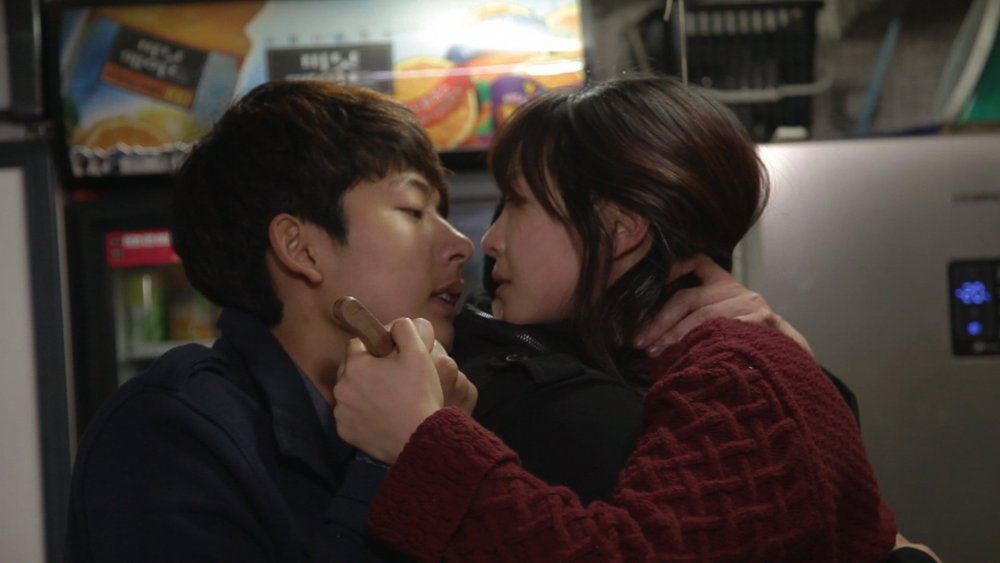
Moebius
So, for entirely different reasons, was Kim Ki-Duk’s hilariously overwrought castration complex horror-comedy Moebius. I’m not sure what it means if I say it’s my favourite ever Kim work since I’m no great admirer of his usual all-for-effect nastiness, but this outrageous tale makes you wince (if you’re male) and laugh alternately.
A spurned mother revenges her husband’s infidelities by cutting off their teenage son’s member, causing the father to have his own removed and preserved for his son, and for the mother to disappear leaving the two males to seek strange forms of self-torture that induce non-penile orgasm as a side effect. To add to the fun are the father’s corner-shop mistress and the leader of a street gang of rapists of whose own misfortune sees him rushing to save his organ from potentially being squished by oncoming traffic.
The promise of sex is at the centre, too, of Jonathan Glazer’s long-awaited adaptation of Michel Faber’s novel Under the Skin, in which Scarlett Johansson plays a provocatively-dressed young woman whose only purpose seems to be to cruise the streets of Glasgow in a car seeking out easily-led men.
It’s the sort of strange fantasy film you can find out too much about beforehand. For the moment I’m just going to say that it feels low key and distancing while you’re watching it, but its own unique vision (which barely resembles that in the novel) makes you want to see it again straight afterwards.
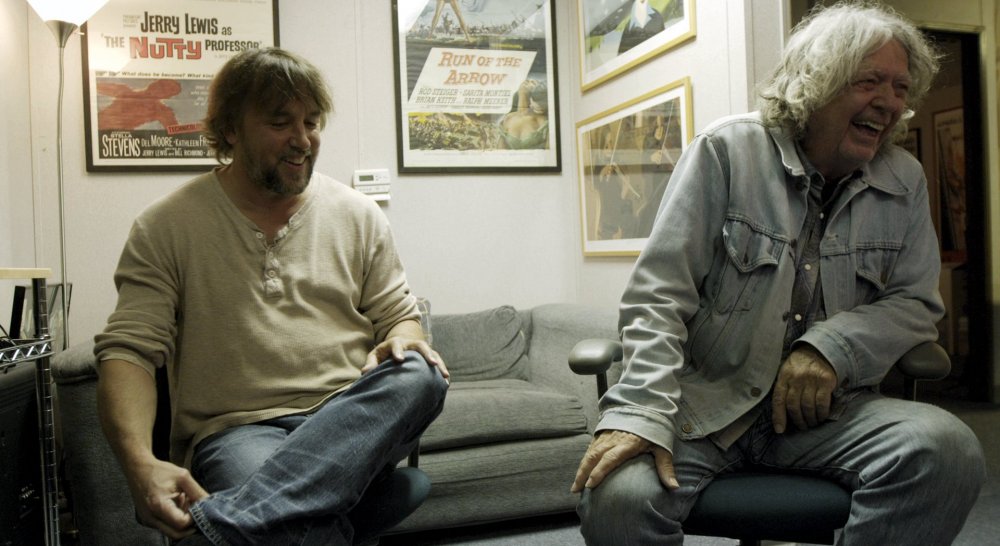
Double Play: James Benning and Richard Linklater
Ashley Clark has already dealt with the larger big-name documentaries, but there were smaller ones worth commenting on in a strong nonfiction line-up. In A Fuller Life, Samatha Fuller’s documentary about her famous film director father Sam, 12 excepts from his memoir A Third Face are read by a terrific roster of talents over a mix of archive footage, clips from his movies and some new film material found among her father’s things. Fuller is such a pungent writer and the talents – including James Franco, Bill Duke, James Toback, Mark Hamill, Joe Dante, Tim Roth, Wim Wenders, Monte Hellman, William Friedkin and Buck Henry – enjoy themselves so much that watching it is a pure pleasure.
Lastly, occasional S&S contributor Gabe Klinger presented his debut documentary Double Play: James Benning and Richard Linklater, in which the two directors of very different kinds meet in Linklater’s Austin, Texas production facility and kibbitz about their longtime friendship and respective attitudes to cinema, memory and time while clips from their films are cunningly interpolated into the discourse.
As dry as that sounds, it isn’t at all. It’s as enjoyable as only a good carefully chewed over conversation between creative equals can be. And Klinger won the Best Classic Documentary prize for it, for which we say congratulations, even if he’s too big to talk to us anymore.
And in the October 2013 issue of Sight & Sound
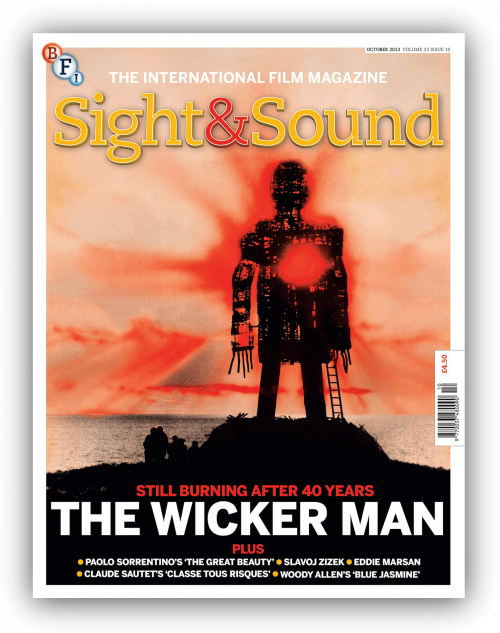
The Sight & Sound Interview: James Benning
Long famous – or at least legendary – for the formal rigour and patience of his landscape films, and for his devotion to 16mm, the American filmmaker and teacher has now embraced digital technology and is even allowing a DVD release of his work. He talks about manipulation, reality, liberty, and the pleasures of watching paint dry with Nick Bradshaw.
-
The Digital Edition and Archive quick link
Log in here to your digital edition and archive subscription, take a look at the packages on offer and buy a subscription.






